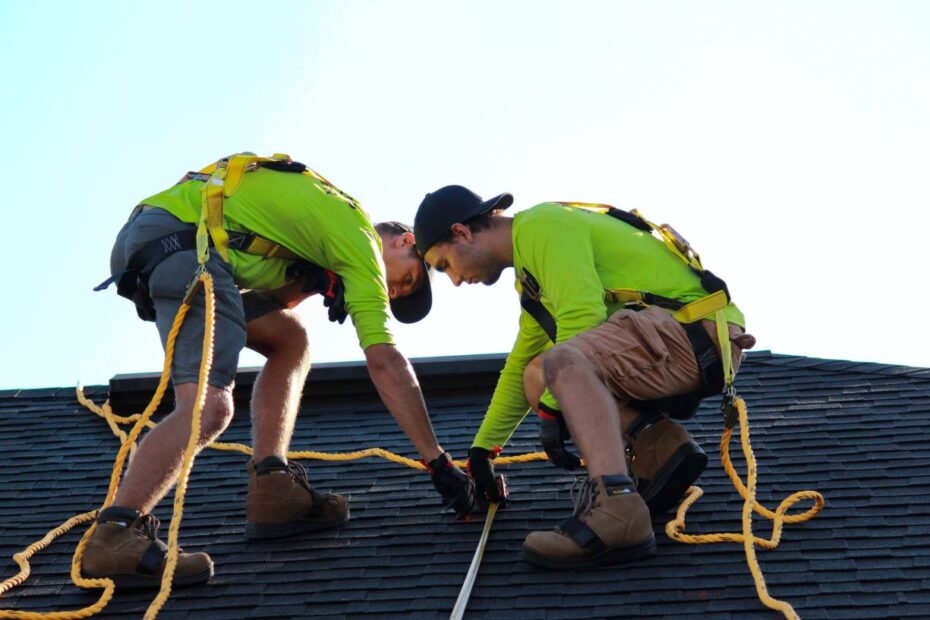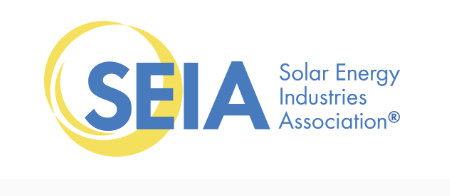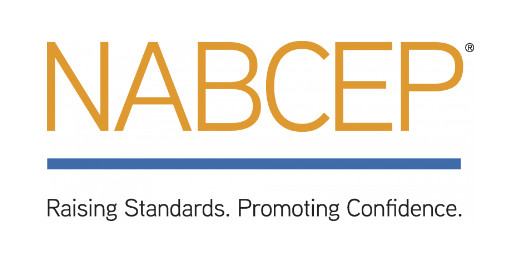If you have done your homework, “run the numbers”, and looked into state and federal tax incentives for going solar and are ready to take the next step, then your focus must be on finding a solar installer.
The main question is: how do you wade through the many local and national companies vying for your business? While this can be a challenging task, you can find the right installer by following the same basic process you would for any other type of contractor for home improvement projects. Below is a guide to vetting various solar companies before settling on the one that best fits your needs.
Understand Local Incentives
First, you will want to get a good idea of the potential discounts available within your state. Start with the public utility commission responsible for ensuring that consumers are educated. They should be the least biased and most knowledgeable source of information. The public utility commission works on behalf of their customers, and these companies have to register with them. Pennsylvania’s PUC website section on Renewable Energy and Solar Energy has FAQs and a Fact Sheet available.
Going solar is still a considerable investment, even with lower prices and federal and state incentives. On a federal level, the Clean Energy Credit allows you to claim 30% of the cost of a solar system from your federal income taxes. The 30% Clean Energy Credit applies to systems installed between 2022 through 2032. The credit drops to 26% in 2033 and 22% in 2034 and expires in 2035. There are also other financial options for installing solar systems.
For Pennsylvania, there are two additional incentives to promote residential solar development.
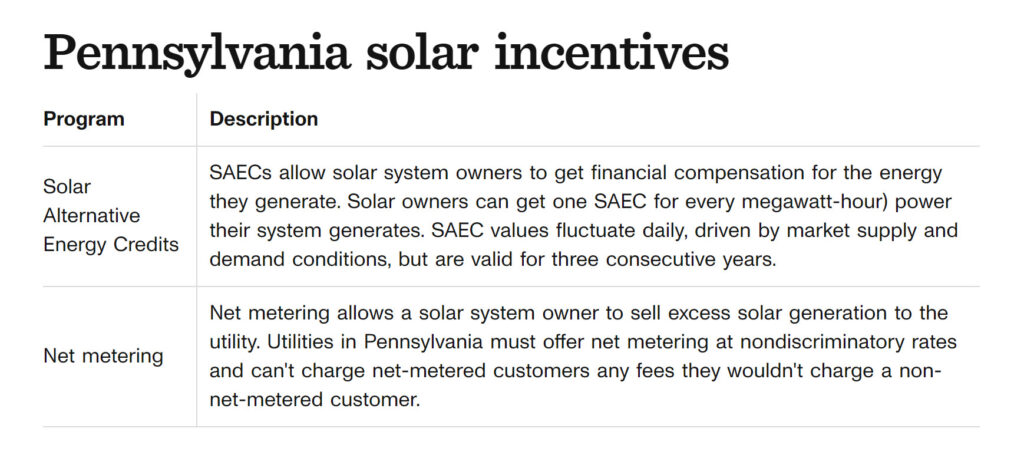
Get Multiple Quotes And Compare
When comparing solar installers, you should always get at least three quotes and compare the prices and features of each one. You will probably want to eliminate anything that is too expensive and be wary of anything that looks too cheap. This will also give you plenty of opportunity to ask questions and learn more before deciding on what best fits your unique needs.
You can get quotes in several different ways. Some installers will offer quotes online or over the phone — without a home visit — by looking at satellite imagery of your roof. However, if you choose this method, you should make sure that the satellite images show the current state of your roof and the shading it gets, not older imagery from past aerial surveys. There are other companies that will want to visit your home in person. Do what you feel most comfortable with, but a local company should be able to easily arrange a home visit.
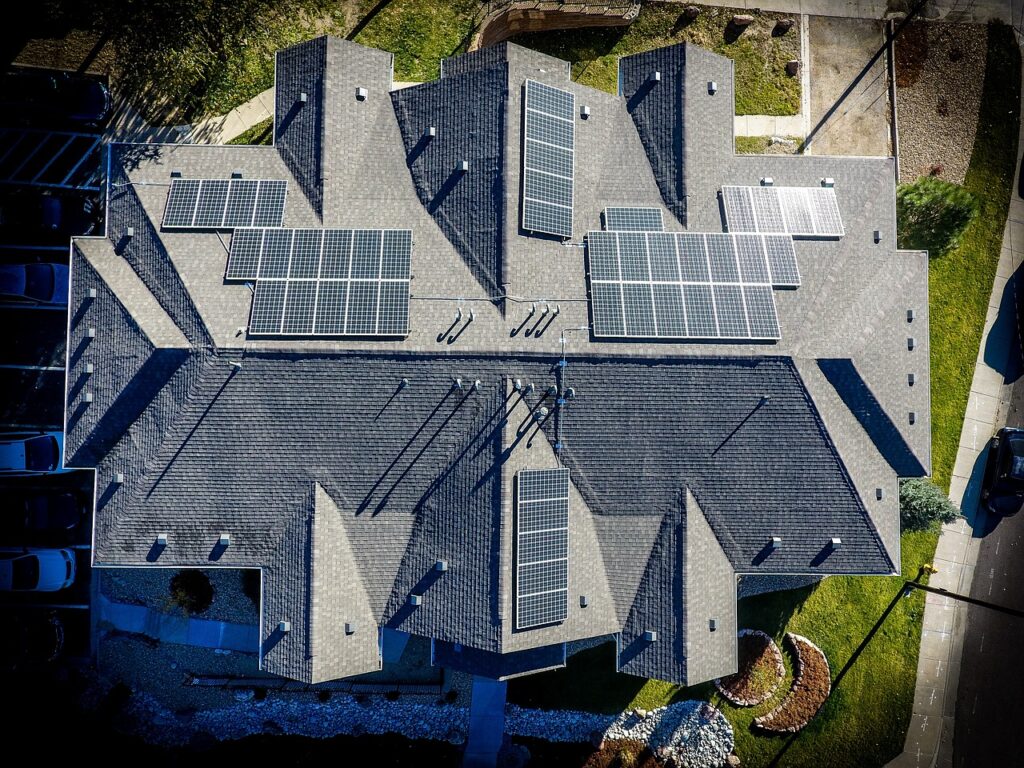
Either way, by getting a few different quotes to compare, you can look at not only the prices but also warranties offered on their work as well as other options for financing.
Look At Reviews, Complaints And Avoid Scams
Just like other services that you would hire, solar installers are subject to public reviews and complaints. Look at reviews on a variety of websites since they can be valuable, but use them as only one of several sources of information you should be evaluating.
The companies should be able to provide you with the names of previous clients who can tell you about their installation experience. Ask them for references. You can also look at testimonials on the company website, as well as online like their Google Business Profile. Also, check online with state agencies and authorities to see if they have any registered complaints or investigations. Pennsylvania’s Consumer Protection Resources office publishes advisories.
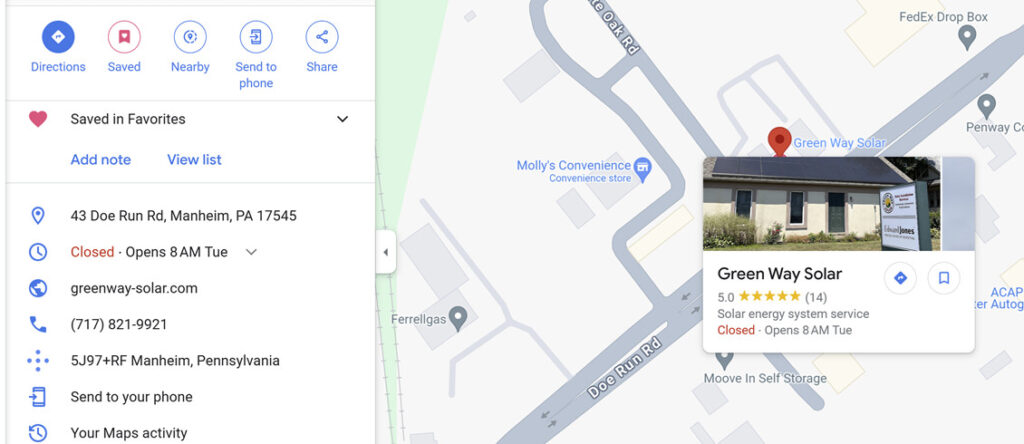
SCAMs
While there are a number of definitions as to what a scam is, it should be about making sure you get what is expected out of your solar installer and not feel like you’ve ‘been taken advantage of’.
There’s a lot of competition between companies because the residential solar industry is booming. Solar companies utilize a variety of sales strategies, from in-house sales teams to online inquiries to third-party companies. Having a good understanding of key solar topics can help you spot if or when a salesperson is making unrealistic claims or bending the rules. A bit of education can go a long way toward getting the best deal for your situation, and reputable solar companies shouldn’t have a problem answering all your questions.
Check Licenses And Certifications
Checking for several licenses and certifications can also help you feel confident about your choice of a reputable solar installer.
You should make sure each solar installer is licensed, bonded, permitted, and insured to install residential solar projects in your local area as well as by the state. They should also have affiliations with credible solar industry associations, like the SEIA, and the Better Business Bureau (BBB). The installer should have industry-standard certifications like those awarded through organizations such as the North American Board of Certified Energy Practitioners (NABCEP), which is widely recognized as the highest standard among renewable energy system installers.
While each state has its own licensing requirements, if an installer is licensed, then that means that they have met certain requirements to demonstrate a specific level of proficiency. Another area to ask about is whether the company uses it’s own installers or subcontracts with others on their projects. If they do, then ask to verify the subcontractor’s licensing as well.
Talk To Friends And Neighbors
People you know who have already installed solar panels can be a great resource for information. You could reach out to them to find out what they learned from the experience and who they liked working with. You may find that it’s more valuable to get direct feedback from a neighbor or friend than scrolling through online reviews.

You might also ask them several questions like:
- What criteria did you use to evaluate all of the installers you got quotes from?
- What ultimately made you decide to go with the solar installer you chose?
- How communicative and responsive was the installer to your questions?
- Did the project go as expected, or were there issues?
- How responsive were they to any of these issues as they arose?
- How happy were you with the entire process?
Ask The Installers Questions
Just comparing different quotes in dollars and cents shouldn’t be the biggest step before choosing a solar installer. You should have a conversation with each installer and ask them several questions about the whole process.

Some of the questions might include:
- Does my roof get enough sun for this project to make sense?
- Does this solar system design use the entire roof or just a south-facing portion?
- Does the roof need to be replaced before installing solar panels?
- What warranties are there on your work, the solar panels, and other equipment?
- What national associations and certifications does your company have?
- What state licenses do you have?
- What state and federal incentives do you know about that I might qualify for by doing this solar project through your company?
- What financing options do you have available?
- What is the expected timeline for completion of the project?
- What does the permitting process look like, and how long will it take?
- What about maintenance on my panels and equipment?
Use the questions and answer (Q & A) format to ‘get a feel’ for how they communicate as well as how it would be to work with them during the project. You will get a sense of their experience, knowledge, and professionalism by seeing how they respond to your inquiries. You will also be able to figure out how responsive and timely they are before you decide to hire them.
Overall, the process of finding the right solar installer will take some time and effort on your behalf, but it will be well worth it when your project is completed to your satisfaction. If you use some of the steps outlined: understanding local incentives, looking at reviews and complaints and avoiding scams, checking licenses and certifications, getting multiple quotes and comparing, talking with friends and neighbors, and asking installers questions, then you will be able to make a confident and informed choice.
